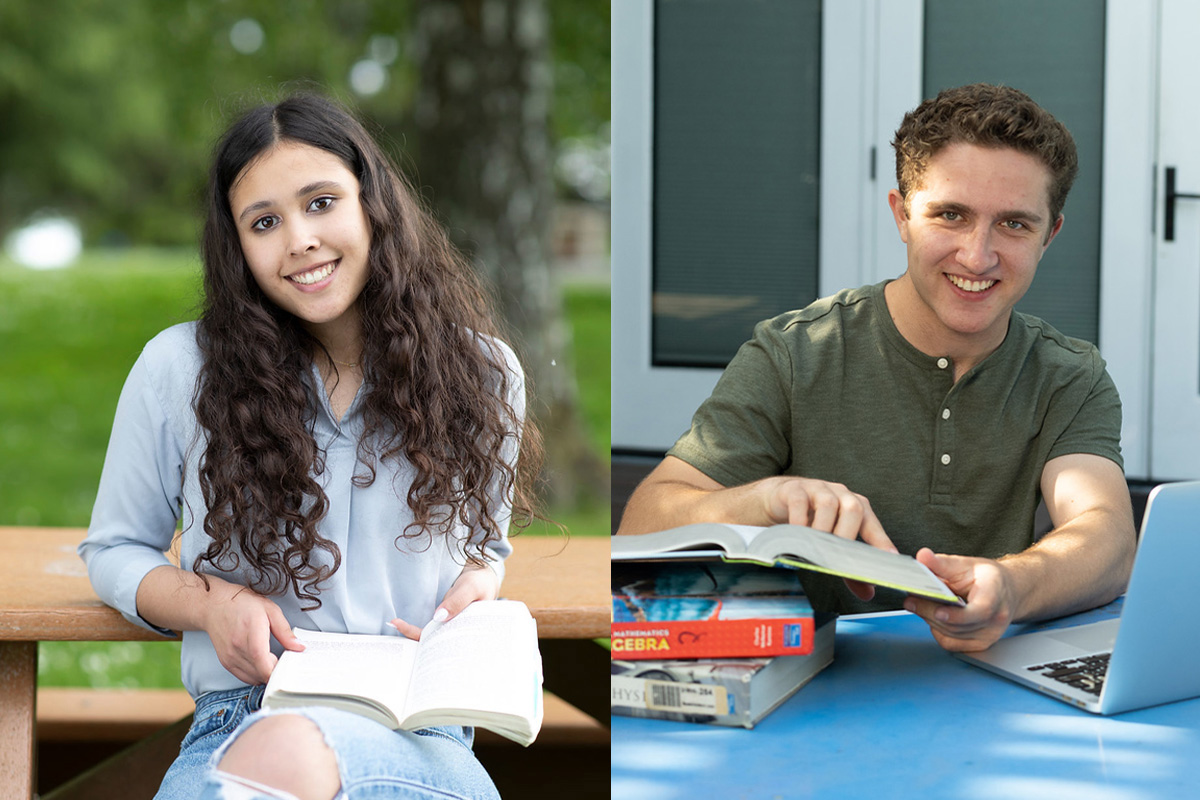When Sophie Wolters started high school in Sammamish, Washington, a suburb of Seattle, she struggled with homework.
“I was always getting in trouble and falling behind in class. My teachers didn’t know what to do,” she said. “My parents would hire adult tutors, but it was hard for me to pay attention, and I also had very low self-esteem. I didn’t think school was for me.”
But then Sophie’s mother found a fellow high schooler to tutor her who not only gave Sophie the emotional and educational support she needed but also went on to become a role model. Inspired by the difference the tutor made in her life — and concerned that marginalized kids often can’t afford extra academic support — Sophie created a program along with her older brother Josh to help students struggling with similar issues.
Since then, the project, Student Connection, has paired over 250 students with volunteer tutors who are themselves in high school, logging more than 15,000 hours of tutoring sessions.
Down the coast, a Jewish day school student in Los Angeles with experience serving as a tutor, Jonah Bard, started a similar project, creating an online tutoring platform called EdRise to help students struggling due to a lack of individualized academic support.
“While our most immediate aim is to make sure students are caught up and confident in their classes, we specifically train tutors to encourage the kids to be as curious as possible,” Jonah said. “I’d been a tutor all my life in various contexts. And connecting students who couldn’t afford private tutoring to people willing to help seemed like an obvious connection to make.”
Today, EdRise delivers free virtual tutoring sessions for marginalized students in grades 3-8. The organization has recruited 113 volunteer high school and college-aged tutors and has reached 267 students over the course of more than 1,200 hours of tutoring sessions.
Sophie and Jonah, both now 18 years old, recently were named recipients of the 2022 Diller Teen Tikkun Olam Awards. The $36,000 award is given annually by the Helen Diller Family Foundation to up to 15 extraordinary teenagers who exemplify the Jewish value of tikkun olam, repairing the world. The recipients can choose to use the funds toward their education or further their project, or both.
“These 15 teens are true leaders of social change. Each of them is tackling a critical issue of our time with an innovative effort to create change and repair the world,” said Phyllis Cook, the foundation’s Philanthropic Executive Officer. “These extraordinary teens are fulfilling their own personal commitments to tikkun olam, as they also inspire so many others in their communities, creating ripples of good that will have lasting impact.”
When Jonah started EdRise in 2020 as a high school junior, the Covid pandemic was in full swing and all classes were held via Zoom. That made the notion of an online tutoring program using Google Meet an easy sell to participants, he said.
Even as the pandemic has waned, Jonah said, “it has been more efficient to connect tutors and students who may live far apart.”
Students from overcrowded public schools in Los Angeles found the personalized tutoring to be a lifeline in an environment where personalized support at school didn’t seem possible, he said.
Jonah plans to use his Diller Teen Tikkun Olam Award both to further his nonprofit’s mission and for his own education — first this coming year at an Israel gap-year program.
“The values of my Jewish upbringing encourage me to do these things,” Jonah said. “I’ve always seen tikkun olam as very connected to righteousness. It’s a part of the set of actions that reflect the values I aspire to live by.”
Sophie said the award feels like an affirmation of her work, but even before earning this recognition, she felt like she was doing something of great value.
“What makes our tutoring unique is that we focus on the emotional aspect of learning,” she said. “I believe you need the emotional support that comes with academic success.”
Many of the teens that Student Connection helps come from homeless shelters, transitional housing and the refugee community in the Seattle-Tacoma metro area. According to Sophie, 87% are people of color, 20% are immigrants, 8% are refugees and 28% have some form of learning disability.
Sophie recalls how her own tutor would begin sessions by asking how her day was going.
“She never pressed me to get answers correct, but she believed in me — she helped me believe in myself,” Sophie said. “Later, as a sophomore, I tutored kids in a nearby underserved community. I remember telling one precocious 12-year-old he was smart. He replied: ‘You’re the first person ever to call me smart.’”
Thanks to Student Connection’s efforts, 63% of students receiving tutoring help stopped failing a class, while 95% improved at least by one letter grade in math, 79% in English, and 71% in science.
Sophie has spoken at 25 high school clubs to recruit more volunteer tutors. Next year she hopes to reach 300 students and hire Student Connection’s first paid employee, a program manager.
“In every student we serve, I see myself,” Sophie said. “I see future learners who just need to believe in themselves.”









